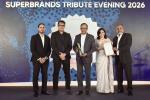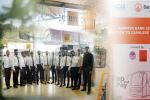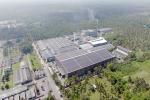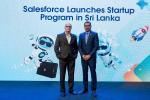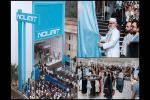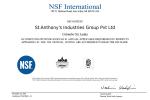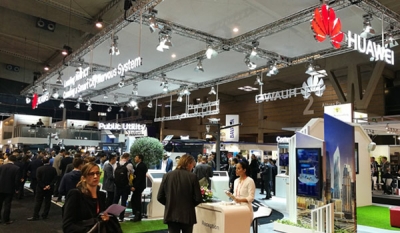Together with its global partners, Huawei is demonstrating joint ICT solutions to connect the digital and physical worlds across city administration, public services, and industrial economies. Using new ICT including cloud computing, Big Data, Internet of Things (IoT), and Artificial Intelligence (AI), these solutions drive unified coordination, cross-sector collaboration, and intelligent analysis for effective management of city services.
Alongside the SCEWC, Huawei hosted the Global Smart City Summit, where representatives from the European Union, international standards organizations, world-renowned consultancies, relevant research institutions and leading Smart Cities shared their insights and experiences in driving Smart City development with over 400 city administrators from around the world.
Huawei Creates a Smart City Nervous System to make the city as an organic life body
Becoming a Smart City involves the digital transformation of a city to address challenges in the physical world.
This demands data-driven systems that combine management and IoT data to help authorities manage the city and enable the physical and digital worlds to be integrated.
Smart City development requires a fundamental change to city administration and for the development to flourish it needs to be a priority for the government. In addition, there must be a strong and capable Smart City project team, long-term and stable investment, and city leaders need to partner with a leading digital provider that can facilitate the transformation.
Yan Lida, President of Huawei Enterprise Business Group, said:
“A Smart City is like a living organism, which is powered by a nervous system.
This Smart City nervous system comprises a “brain” [the control center] and “peripheral nerves” [the network and sensors], gathering real-time information about the status of the city, transmitting the data, enabling the “brain” to analyze and make informed decisions, delivering feedback commands, and ultimately carrying out intelligent actions.
This creates a seamless link between the physical and digital worlds. Leveraging leading new ICT such as cloud computing, IoT and AI, Huawei is committed to creating a strong nervous system that powers Smart Cities.
With our innovations and investment in various technologies, we develop an open platform for Smart Cities, which is compatible with various devices and supports a wide range of applications.
We aim to be the rich soil that supports the robust and sustainable development of Smart Cities.
Huawei is one of the few ICT solution providers in the industry that can offer end-to-end cloud-pipe-device solutions, leading the way to connecting the physical and digital worlds.
We will continue to work together with our ecosystem of partners to create top-level designs addressing city administrators’ needs and achieving the ultimate goals of a Smart City – to enable good governance, promote industry development and deliver benefits for the people.”
During the Global Smart City Summit, Huawei released the Intelligent Operation Center (IOC),a solution that functions as the “brain” of the Smart City, connecting the digital and physical worlds.
The underlying infrastructure of the IOC comprises distributed cloud data centers and ubiquitous city networks that collect, integrate and share city information, enabling real-time visibility of the city.
The IOC uses an Integrated Communications Platform (ICP) that enables intelligent collaboration across city functions and emergency dispatch of all services.
By using Big Data, machine learning and AI technologies, the IOC delivers valuable insights to facilitate city planning and management of vital services such as transportation and security.
Huawei also provides wired and wireless broadband, IoT platforms, and LiteOS – a secure, lightweight and intelligent operating system, that serve as the peripheral nervous system, collecting data to assist the brain in making decisions, which bring about changes in the physical world.
For example, sensors for temperature, humidity and brightness in greenhouses provide real-time environmental data for the city operations control center, enabling the center to inform respective control devices to carry out adjustments when the thresholds are reached, to meet the specific environmental needs of the crops in each greenhouse.
About Smart City Expo World Congress (SCEWC)
The SCEWC in Barcelona is held by the World Smart City Committee and supported by the UN Human Settlements Programme, the EU, and local governments.
It is one of the smart city expos of the highest level and largest scale around the globe, aimed at transforming application and management of traditional resources through reform and innovative technologies and creating highly efficient and sustainable cities with the help of comprehensive solutions consisting of energy, science and technologies, mobile transportation and geographical management.
By 2017, at least 20 countries will formulate national smart city policies and devise technological and industrial guidance with investment as the focus.
China, as this year’s host, will share with the world Chinese practices and experiences through the introduction of pilot cities and from experts and ICT vendors such as Huawei.
About Huawei
Huawei is a leading global information and communications technology (ICT) solutions provider.
Our aim is to enrich life and improve efficiency through a better connected world, acting as a responsible corporate citizen, innovative enabler for the information society, and collaborative contributor to the industry.
Driven by customer-centric innovation and open partnerships, Huawei has established an end-to-end ICT solutions portfolio that gives customers competitive advantages in telecom and enterprise networks, devices and cloud computing.
Huawei’s 180,000 employees worldwide are committed to creating maximum value for telecom operators, enterprises and consumers. Our innovative ICT solutions, products and services are used in more than 170 countries and regions, serving over one-third of the world’s population.
Founded in 1987, Huawei is a private company fully owned by its employees.

